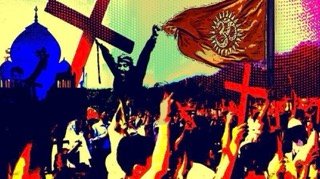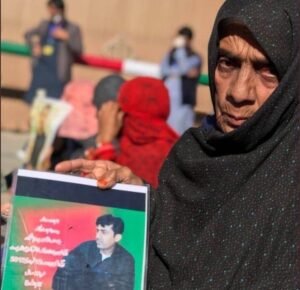Religious Minorities Struggle for Dignity and Protection in Pakistan

Photo: @FridayTimes X
By Fatima Chaudhary
In Pakistan, the vision of equal citizenship enshrined in its founding principles continues to erode as religious minorities face an escalating wave of systemic exclusion, violence, and neglect. From legal discrimination and violent assaults to government inaction, the lived reality of Christians, Ahmadis, and other non-Muslim communities reveals a society where constitutional promises are routinely betrayed.
A stark example emerged recently in Chenab Nagar, the heartland of the Ahmadiyya community. The Punjab Housing and Town Planning Agency (PHATA) issued a public notice that openly disqualified Ahmadis from participating in government land auctions. This decision, implemented under the pretext of religious identity, specified that only Muslims could take part—and warned of land confiscation without reimbursement if an Ahmadi was later found to have purchased a plot.
Such overt discrimination, likened by critics to apartheid, contradicts Pakistan’s constitutional guarantees and international human rights obligations. The move drew outrage from activists and members of the Ahmadiyya community, who highlighted the state’s role in institutionalizing religious segregation.
A comprehensive report by the Human Rights Commission of Pakistan (HRCP) painted a grim picture of increasing violence and legal harassment of minorities throughout 2023 and into 2024. More than 750 individuals were imprisoned under blasphemy laws, with many cases widely believed to be based on fabricated charges or personal vendettas. The majority of those affected were from the already-persecuted Ahmadiyya community.
The report also recorded four faith-based murders and widespread desecration of Ahmadi graves. Christian neighborhoods in areas like Jaranwala and Sargodha came under attack following inflammatory social media posts, triggering mob violence. Despite these incidents drawing national and international condemnation, investigations remain stalled, and justice elusive.
The tragic story of Aina and Shaina, two teenage Christian sisters in Faisalabad, provides a devastating window into the daily threats faced by religious minorities—especially women. The sisters, who work as domestic helpers, were assaulted by a group of Muslim youths while walking home on April 15, 2025. The attackers verbally abused them, beat them, and dragged them through a public marketplace, brandishing a pistol to intimidate onlookers.
Calls to emergency services went unanswered until the local Christian community organized a protest, forcing the police to file a case. This delay in justice was condemned by Christian leaders and human rights activists, who called attention to the structural bias in law enforcement and the judiciary. The girls, already orphaned, now face renewed fear and trauma, with community members stepping in to demand protection and accountability.
Perhaps most alarming is the persistent silence of the government in the face of such abuses. Rights defenders have repeatedly criticized the lack of political will to address the persecution of minorities. The HRCP has urged for immediate constitutional reforms to enable non-Muslims to hold top offices such as the Prime Minister and President—currently restricted to Muslims.
The report also calls for a minorities’ caucus in parliament and stronger oversight of madrassa education to prevent hate speech. Additionally, activists demand the removal of discriminatory sections of the blasphemy laws, and for swift action against vigilante violence, which is often incited through religious rhetoric.
Beyond direct violence, minority groups also face subtler yet deeply damaging forms of discrimination, such as economic exclusion and forced religious conversions—particularly of young Christian and Hindu girls. These cases often go unreported, and when they do surface, they are frequently dismissed by authorities as consensual or family matters.
Economic marginalization further entrenches the vulnerability of these communities, many of whom remain stuck in low-income jobs with little access to education or healthcare. In such an environment, women and children become easy targets, their voices muted by fear and systemic neglect.
Pakistan stands at a crossroads. As rights groups and religious leaders alike call for urgent reform, the government’s continued inaction sends a dangerous message—that the persecution of minorities is not just tolerated but, in some instances, sanctioned.
The international community has also begun to take notice, with growing demands for Pakistan to uphold its commitments under human rights conventions. Domestic voices—from rights groups to interfaith coalitions—are pushing back against the tide, but their efforts can only succeed if matched by political courage and legal action.
Religious minorities in Pakistan are not asking for privilege—they are demanding protection, equality, and the dignity promised to all citizens. The question now is whether the nation will listen.
Fatima Chaudhary is a lecturer at a private university in Punjab province.
Note: The contents of the article are of sole responsibility of the author. Afghan Diaspora Network will not be responsible for any inaccurate or incorrect statement in the articles.











